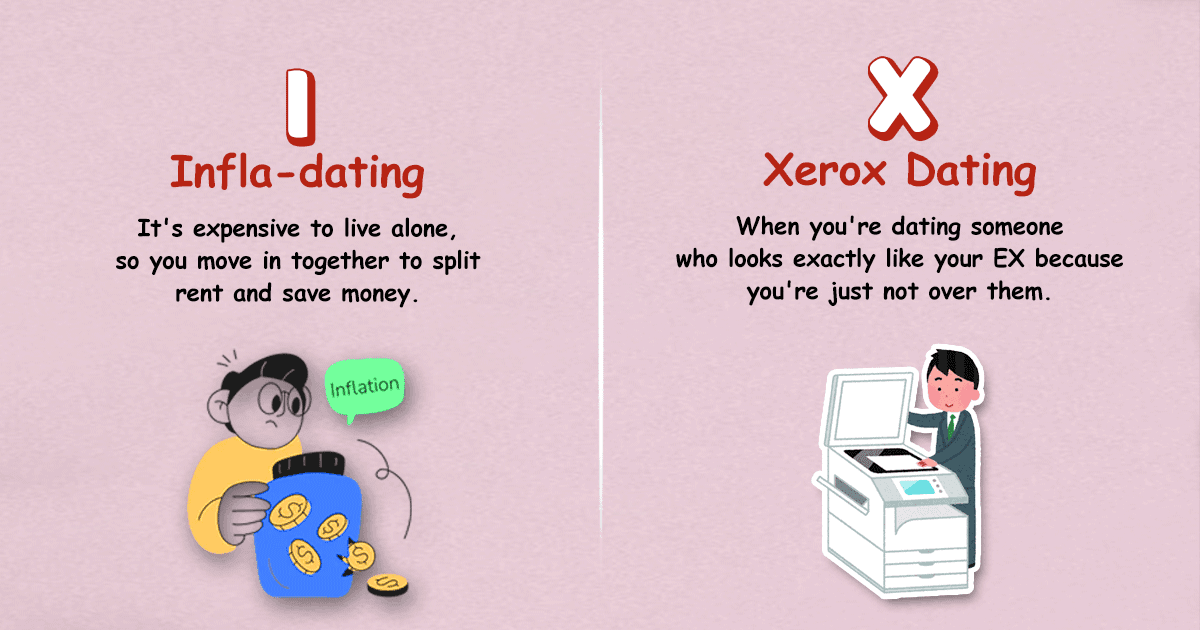Relationships aren’t easy, but they’re also not supposed to be exhausting. We shouldn’t have to leave them as different people, who are not even recognizable by ourselves. There are a lot of changes that anyone sees in a relationship, but it isn’t supposed to come at the cost of one’s individuality.
A lot of times, we do things just because a lot of people do it, and it’s ‘the way to live’. But, no two relationships are the same.
And hence, not all things that are normalised in a relationship are the right things to do.
1. Being each other’s ‘unpaid’ therapists.
While there’s an emotional intimacy that relationships include, there needs to be a balance and a certain respect for a partner’s mental space. Sharing one’s vulnerabilities and emotional lows shouldn’t also mean that you’re depending totally on your partner, or that’s something that is taking up their space. This is a common practice, which is either taken for granted or not even noticed.
2. Having to tell everything.
There’s a notion that not telling your significant other everything about yourself or information that you know about someone else is important. As if not telling them things means that you’re betraying them, but that’s actually not true. Things that are deeply personal or don’t concern one’s partner shouldn’t always have to be shared, if a person isn’t comfortable sharing it.
3. Fixing them.
Movies have made it a point to show that women can change men, in fact, they have to. It’s like women are always ‘expected’ to deal with the emotional burden of everyone else other than themselves. Fixing a partner or changing them is not anyone else’s responsibility. And that’s definitely not a good enough reason to be in a relationship.
4. Compromising all the time.
Our society celebrates marriage, and that notion has indirectly normalised it to compromise and adjust in relationships. Not doing that eventually makes us ‘stubborn’ or ‘selfish’. But, what is made to sound like a necessity in romantic relationships, is something that makes them suffocating. Compromising or giving up on things doesn’t mean that you’re trying hard or making effort, it just means that your relationship has taken over your life.
5. Sharing of passwords.
We live in a world where we take social media more seriously than real life. And hence, it’s considered like a test for relationships – where sharing passwords, and constantly exposing our personal lives is considered normal. But it’s actually unfair to expect anyone to give up control over something that’s entirely their own. It might not be a big deal, literally, but it does hinder the idea of trust and even space. When something like sharing passwords is normalised, it actually gives a lot of control to one’s partner, and in-turn there’s little to no individuality left. And let’s just face it, it’s immature.
6. Having the same group of friends.
Imagine spending all your time with your partner, and then hanging out with the same set of friends, they do. That not only sounds toxic, but also leaves no space for new experiences. Any two people who are having all the same experiences together, are bound to become like each other, and that really leaves no scope for anything exciting or new.
7. Always knowing what the other person wants.
No one can completely know what someone else wants, we hardly figure out things about ourselves, and doing it for someone else is just an added pressure. We cannot be or expect our partners to be mind readers who must do the right thing, at all times. It’s almost impossible to know anyone without communicating, and imaging stuff is worse than not taking action. So, even if this sounds ‘romantic’, telepathy in relationships is actually alarming.
8. Sharing finances.
Practically, making a living for oneself makes anyone independent, which is important. And it’s okay to help a partner or even support them financially in times when they need it. But completely depending on your partner or having no control over your finances is really a red flag. When anyone does this, they start living as a unit and not as an independent person who’s capable of making decisions for themselves, which is definitely alarming in the long-term.
9. Doing everything together.
Again, spending all the time with the same person can make things mundane. It’s human nature to get irritated and overwhelmed when there’s hardly any change in routine. Additionally, one can only grow if they have enough space to explore oneself – and that definitely doesn’t happen if a relationship becomes so suffocating that you cannot imagine doing anything alone.
10. Taking their side, even when they’re wrong.
It’s natural to expect your closest person to take a stand for you, even when they have a choice. But, it’s important to tell people you care about, even the ones you love the most that they’re wrong when they’re. Pointing out flaws doesn’t make them bad people or any less in front of the world, it just makes them better individuals. And a partner can only trust you if you’re honest with them, even if it sounds brutal at first.
In the end, different things work for different people, and nothing should be treated as the ‘perfect’ idea.




























